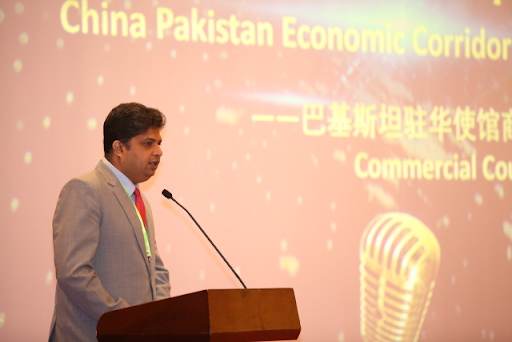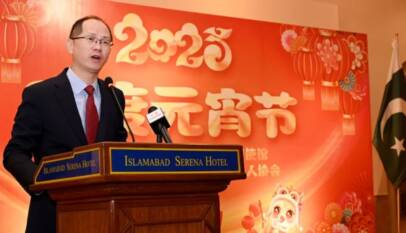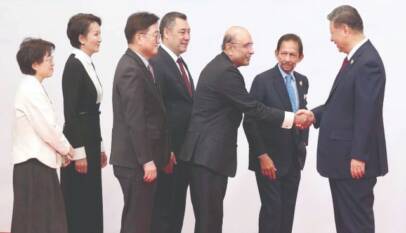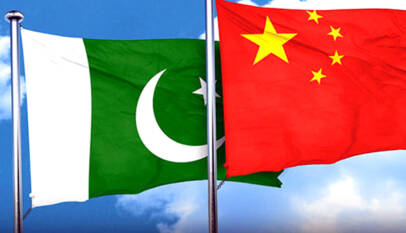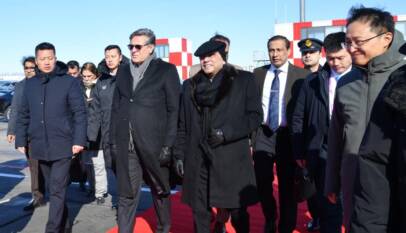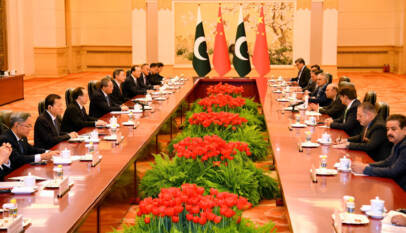Pakistan can further boost exports to China: Commercial Counsellor Zaman
The Commercial Counsellor of Pakistan Embassy, Badar uz Zaman has said that Pakistani exporters need to create good brands to attract Chinese customers. He said that as the per capita income in China increases, there is great potential to earn from increased exports. He also stated that Pakistan’s exports to China have registered an increase of 70.3% during the first half of the current fiscal year, signaling the need for further expansion as textiles, seafood and agricultural products have done extremely well.
BEIJING – Expressing satisfaction over tremendous increase in exports to China in first half of 2021 as compared to six months of last year, Commercial Counsellor, Pakistan Embassy, Beijing, Badar uz Zaman on Sunday said that the Pakistani exporters needed to establish good brands to attract Chinese customers and further increase exports to China.
“Since China has offered many concessions to the Pakistani exports, and many exhibitors and exporters are also working to market their products into the Chinese market after signing of free trade agreement between Pakistan and China, there is a tremendous export of 85per cent in the first half of the year 2021 as compared to the first half of the year 2020,”he told APP in an interview.
He said that the per capita income was increasing in China, and now consumer products were gaining a lot of attraction from all over the world.
“As Pakistan is also good in the consumer products, especially in the textile, leather, sports goods, surgical and food related industries and agro. So, in these areas there will be a strong Chinese demand,” he added.
Pakistan’s export to China crossed $1.735b in Jan-to-Jun in first half of 2021, registering an increase of 70.3 per cent
Badar uz Zaman opined that the Pakistani exporters needed to establish good brands because Chinese prefer to buy the brands and added, “If we are able to market our good brands in China by setting up export offices and by engaging the big importers, then we will definitely see the growth in exports.”
According to the official data from the General Administration of Customs of the People’s Republic of China (GACC), Pakistan’s export to China crossed $1.735 billion in January-to-June in the first half of 2021 registering an increase of 70.3per cent during the first half of the current fiscal year (2020-2021).
The bilateral trade between Pakistan and China witnessed a significant increase despite the COVID-19 pandemic. Pakistan’s exports stood at $1.735 billion in the first half of FY2021, up 70.3 per cent from $1.019 billion in the same period of the previous year.
Last month, Adviser to Prime Minister on Commerce and Investment, Abdul Razak Dawood announced via Twitter that Pakistan’s export to China registered an increase of 34per cent in FY2020-21.
“I’m pleased to share that our exports have done quite well in our major markets. During financial year 2021, our exports to China increased by 34per cent to $2.33 billion as compared with $1.74 billion in the previous financial year, increasing $586 million,” tweeted Dawood.
This half fiscal year China’s export to Pakistan also increased 48 per cent amounting to $10.87 billion as compared with the previous year which was $7.35 billion. The total volume of trade between China and Pakistan had increased by 50.8 per cent amounting to $12.6 billion as compared with 2020 which was $8.37 billion due to Covid-19 pandemic.
Among the growth of trade in major products between the two countries, textiles, seafood and agricultural products have increased year on year, which has promoted Pakistan’s economic recovery and increased its exports to China.
China-Pakistan ties to grow stronger through mutually beneficial cooperation: Chinese envoy
ISLAMABAD: Charge d’Affaires of the Chinese Embassy in Pakistan, Shi Yuanqiang, has emphas…



